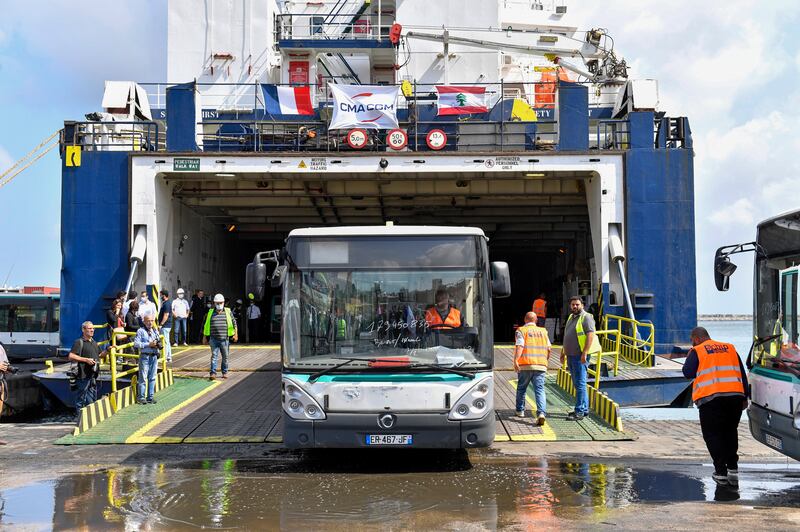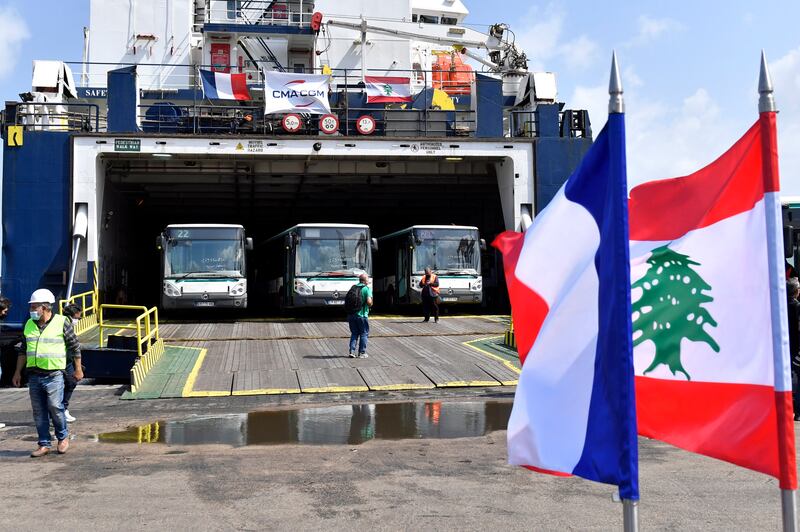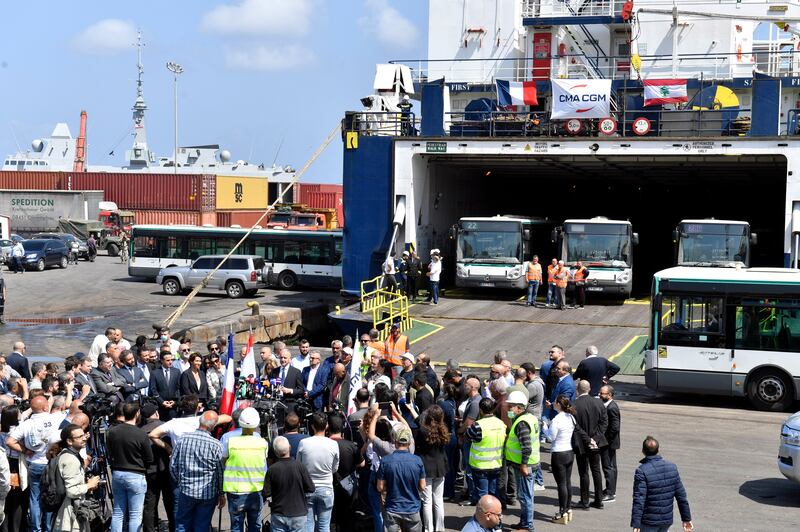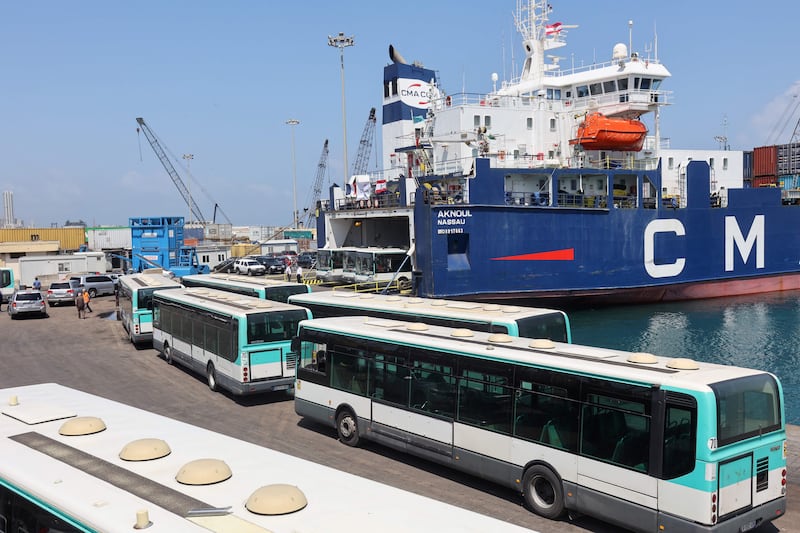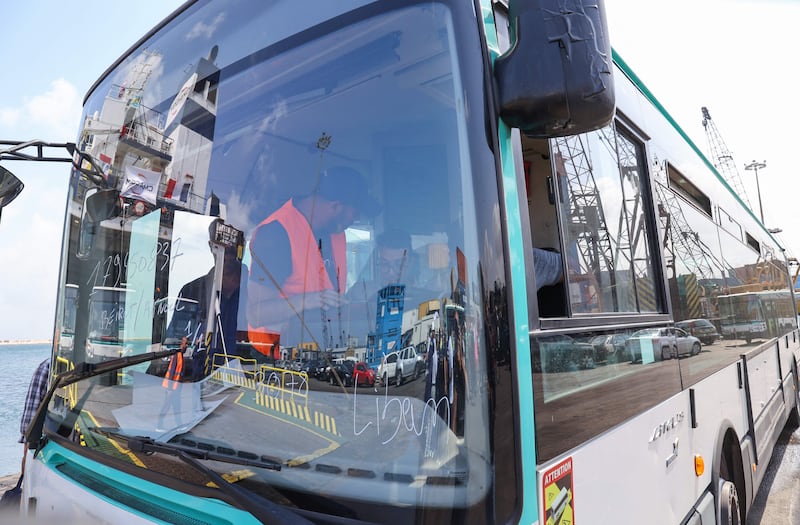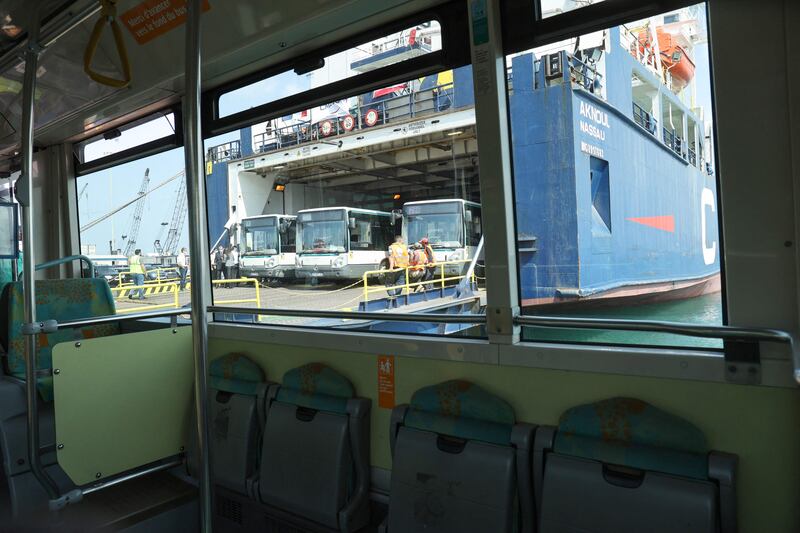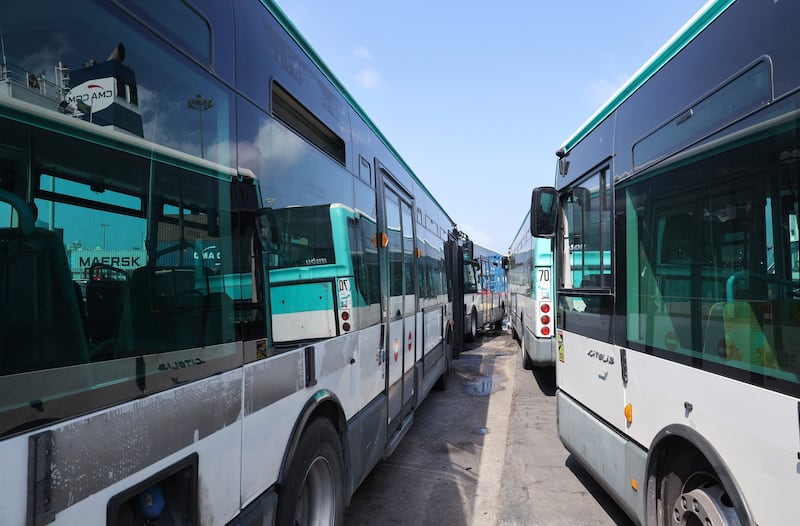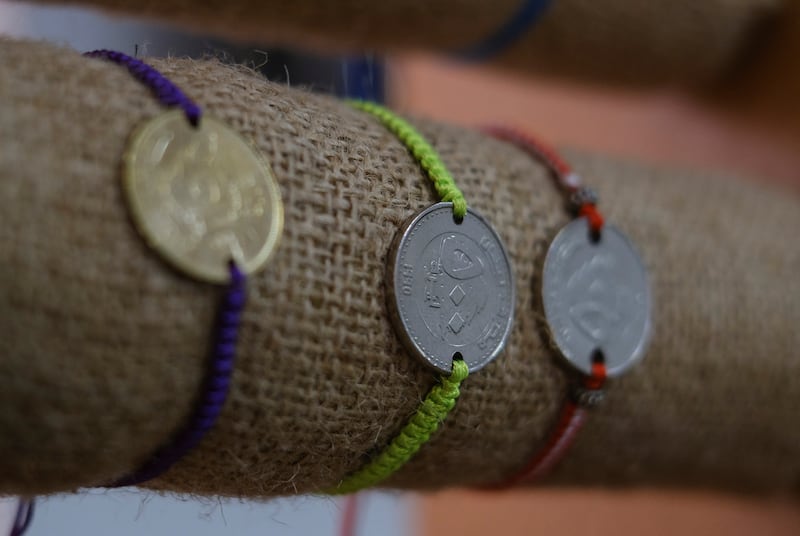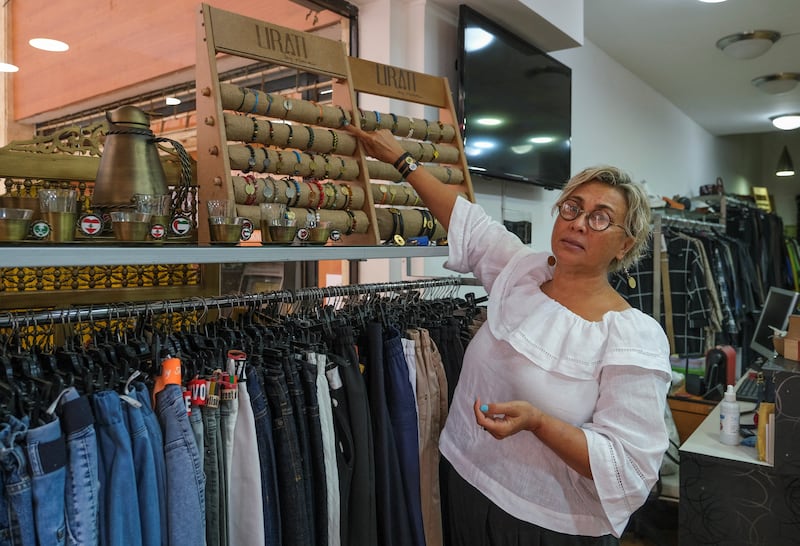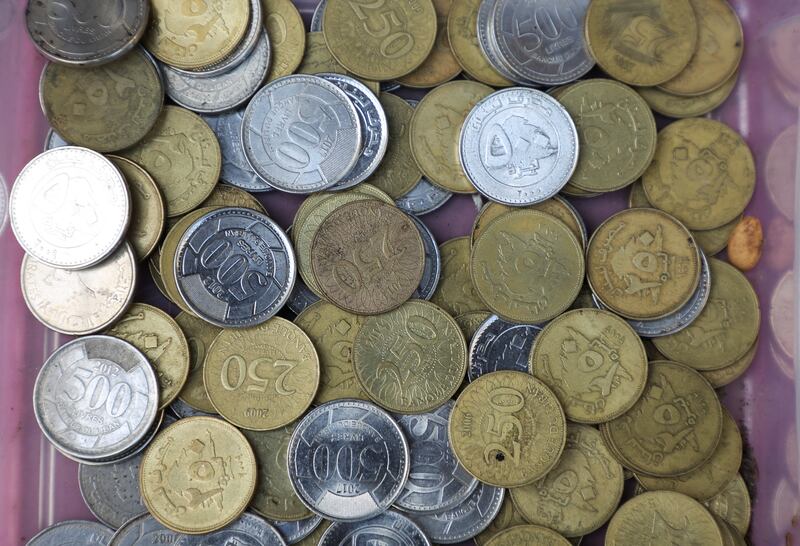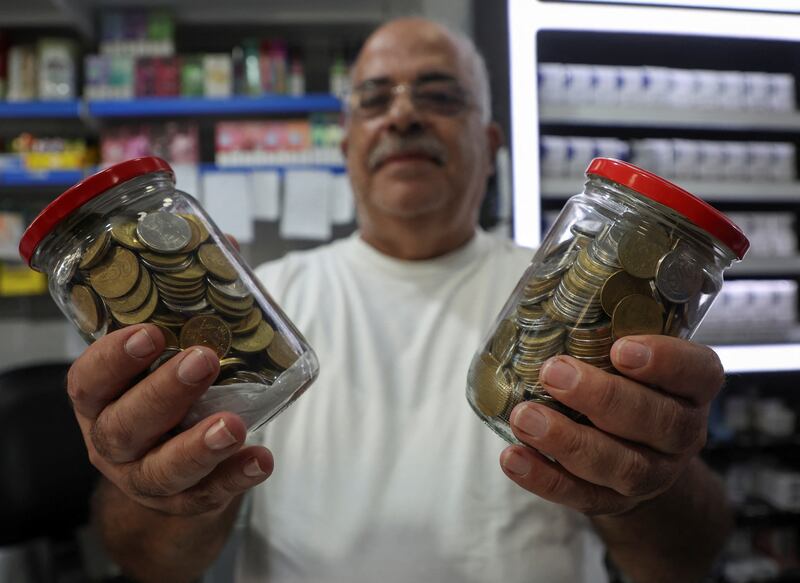A fleet of buses donated to Lebanon was heralded as a shot in the arm for Beirut's aged public transport system at a time when many were looking to cut costs during the economic crisis. But barely a month after the first of the 50 buses from France last year hit the roads of the capital, services have been suspended.
“We had to stop because of a lack of funds and resources from the state,” Ziad Nasr, director general of the Office of Railways and Public Transport, told The National.
France donated 50 modern buses in May last year as part of an effort to modernise Lebanon's public transport system.
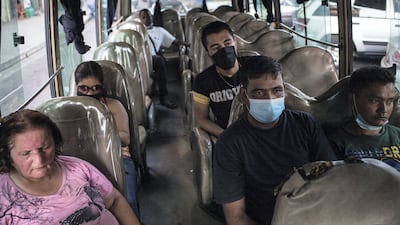
Initially intended to be operational in a matter of weeks, the project took six months before the first 10 single-decker buses rolled out of the depots in December. Then, in January, Riders’ Rights, the Lebanese NGO that works for mobility justice, reported the funding issues.
Mr Nasr said they were looking for private sector investment to operate the buses on behalf of the state, but given the economic crisis, he said there was limited interest in such a tender.
The 10 buses launched in December covered four routes around the capital. They were unable to dispatch more due to "our limited human and material resources", he said.
Mr Nasr said that he warned the Transport Ministry before the launch that there were funds to run the 10 buses for only a month.
Public Works and Transport Minister Ali Hamieh could not be reached for comment but at the launch of the service, he said the project required support from the Finance Ministry to cover fuel, maintenance and salaries.
Fare prices were set at 20,000 Lebanese pounds, about $0.31 on the tumultuous parallel market. The price was generally less than the cost of a journey on one of the many private mini-vans that ply the streets.
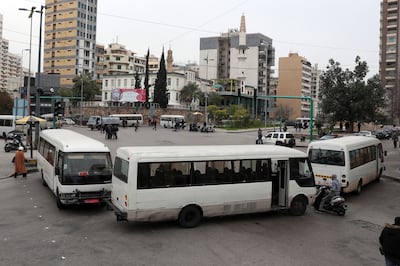
The plan was for the buses to link up areas of the capital, as well as connect Beirut with the rest of the country. It was hoped the initial batch of buses would lead to more in the future.
Fuel prices have surged in Lebanon and public transport is typically the cheapest option for many people. However, the buses run previously by the government were extremely old and slow.
As inflation continues to skyrocket and wages stagnate, many have seen the real value of their salary plummet. The country is grappling with the worst economic crisis in modern history.
Basic commodities, such as electricity, medicines and clean water have become increasingly scarce.
